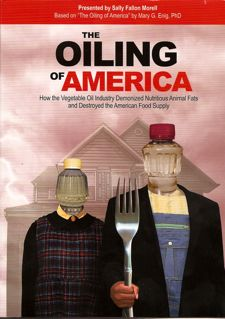At a family gathering last Sunday, my daughter and her fiancé were questioning which oil to use when cooking foods at high temperatures. It's a topic many of us grapple with, especially as we’re constantly bombarded with misleading messages from the vegetable oil industry.
We all want to make healthy choices. Many of us even keep a go-to list of healthy fats and make sure not to stray from it. We stock our pantry shelves and refrigerators with the highest quality fats and oils—extra virgin, cold-pressed, centrifuge-extracted. But unfortunately, using or storing these oils improperly can undo all of our good intentions.
What Are the Healthiest Cooking Oils to Use?
Here’s a practical breakdown of healthy fats for cooking at high temperatures and those best reserved for salads or low-heat use:- Coconut oil
- Palm oil

- Palm kernel oil
- Ghee
- Butter (watch the smoke point!)
- Tallow
- Suet
- Lard
- Chicken fat
- Goose fat
- Duck fat
These fats are stable at high temperatures and ideal for sautéing, frying, and baking.
For Salads or Low-Temperature Cooking:
- Extra virgin olive oil (also okay for low temperature cooking)
- Expeller-expressed sesame oil
- Expeller-expressed peanut oil
- Expeller-expressed flax oil (in small amounts)
These oils are best used raw—on salads, in dips, or drizzled over cooked foods. Oils like flax oil should be refrigerated to preserve their delicate fats and prevent rancidity.
A Flavorful Blend
If you enjoy the taste of olive oil or sesame oil but want more heat stability, try blending them with coconut oil. This combination is incredibly flavorful for sautéing. Simply mix equal parts of all three oils—just warm the coconut oil slightly to help it blend.
These healthy fats and oils are nutrient-rich and have nourished traditional cultures for thousands of years.
Avoid These Fats
On the flip side, research has linked certain fats to serious health issues, including cancer, heart disease, immune dysfunction, sterility, learning disabilities, growth problems, and osteoporosis:*- All hydrogenated and partially hydrogenated oils
- Industrially processed liquid oils such as soy, corn, safflower, cottonseed, and canola
- Fats and oils—especially vegetable oils—heated to very high temperatures during processing or frying
*Weston A. Price Foundation, Principles of Healthy Diets, page 5
